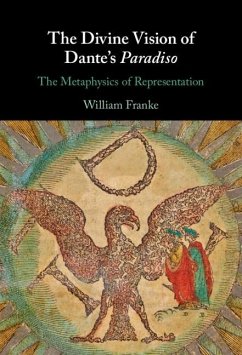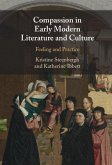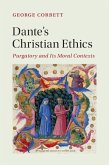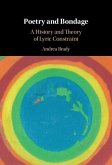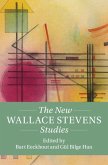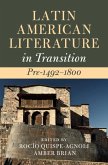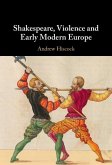22,95 €
22,95 €
inkl. MwSt.
Sofort per Download lieferbar

11 °P sammeln
22,95 €
Als Download kaufen

22,95 €
inkl. MwSt.
Sofort per Download lieferbar

11 °P sammeln
Jetzt verschenken
Alle Infos zum eBook verschenken
22,95 €
inkl. MwSt.
Sofort per Download lieferbar
Alle Infos zum eBook verschenken

11 °P sammeln
- Format: PDF
- Merkliste
- Auf die Merkliste
- Bewerten Bewerten
- Teilen
- Produkt teilen
- Produkterinnerung
- Produkterinnerung

Bitte loggen Sie sich zunächst in Ihr Kundenkonto ein oder registrieren Sie sich bei
bücher.de, um das eBook-Abo tolino select nutzen zu können.
Hier können Sie sich einloggen
Hier können Sie sich einloggen
Sie sind bereits eingeloggt. Klicken Sie auf 2. tolino select Abo, um fortzufahren.

Bitte loggen Sie sich zunächst in Ihr Kundenkonto ein oder registrieren Sie sich bei bücher.de, um das eBook-Abo tolino select nutzen zu können.
A bold study that reveals Dante''s medieval vision of Scripture as theophany through pioneering use of contemporary theory and phenomenology.
- Geräte: PC
- mit Kopierschutz
- eBook Hilfe
- Größe: 4.65MB
- FamilySharing(5)
Andere Kunden interessierten sich auch für
![Compassion in Early Modern Literature and Culture (eBook, PDF) Compassion in Early Modern Literature and Culture (eBook, PDF)]() Katherine IbbettCompassion in Early Modern Literature and Culture (eBook, PDF)22,95 €
Katherine IbbettCompassion in Early Modern Literature and Culture (eBook, PDF)22,95 €![Dante's Christian Ethics (eBook, PDF) Dante's Christian Ethics (eBook, PDF)]() George CorbettDante's Christian Ethics (eBook, PDF)19,95 €
George CorbettDante's Christian Ethics (eBook, PDF)19,95 €![Poetry and Bondage (eBook, PDF) Poetry and Bondage (eBook, PDF)]() Andrea BradyPoetry and Bondage (eBook, PDF)88,95 €
Andrea BradyPoetry and Bondage (eBook, PDF)88,95 €![New Wallace Stevens Studies (eBook, PDF) New Wallace Stevens Studies (eBook, PDF)]() New Wallace Stevens Studies (eBook, PDF)73,95 €
New Wallace Stevens Studies (eBook, PDF)73,95 €![Latin American Literature in Transition Pre-1492-1800 (eBook, PDF) Latin American Literature in Transition Pre-1492-1800 (eBook, PDF)]() Latin American Literature in Transition Pre-1492-1800 (eBook, PDF)88,95 €
Latin American Literature in Transition Pre-1492-1800 (eBook, PDF)88,95 €![Political Culture in the Latin West, Byzantium and the Islamic World, c.700-c.1500 (eBook, PDF) Political Culture in the Latin West, Byzantium and the Islamic World, c.700-c.1500 (eBook, PDF)]() Political Culture in the Latin West, Byzantium and the Islamic World, c.700-c.1500 (eBook, PDF)0,00 €
Political Culture in the Latin West, Byzantium and the Islamic World, c.700-c.1500 (eBook, PDF)0,00 €![Shakespeare, Violence and Early Modern Europe (eBook, PDF) Shakespeare, Violence and Early Modern Europe (eBook, PDF)]() Andrew HiscockShakespeare, Violence and Early Modern Europe (eBook, PDF)0,00 €
Andrew HiscockShakespeare, Violence and Early Modern Europe (eBook, PDF)0,00 €-
-
-
A bold study that reveals Dante''s medieval vision of Scripture as theophany through pioneering use of contemporary theory and phenomenology.
Dieser Download kann aus rechtlichen Gründen nur mit Rechnungsadresse in A, B, BG, CY, CZ, D, DK, EW, E, FIN, F, GR, HR, H, IRL, I, LT, L, LR, M, NL, PL, P, R, S, SLO, SK ausgeliefert werden.
Produktdetails
- Produktdetails
- Verlag: Cambridge University Press
- Erscheinungstermin: 19. August 2021
- Englisch
- ISBN-13: 9781009037310
- Artikelnr.: 70908831
- Verlag: Cambridge University Press
- Erscheinungstermin: 19. August 2021
- Englisch
- ISBN-13: 9781009037310
- Artikelnr.: 70908831
- Herstellerkennzeichnung Die Herstellerinformationen sind derzeit nicht verfügbar.
William Franke is Professor of Comparative Literature and Religious Studies at Vanderbilt University and Visiting Professor at the University of Navarra. He is a research fellow of the Alexander von Humboldt-Stiftung and has been Fulbright-University of Salzburg Distinguished Chair in Intercultural Theology and Study of Religions. His books include Dante's Interpretive Journey (1996), On What Cannot Be Said (2007), Poetry and Apocalypse (2009), Dante and the Sense of Transgression (2013), A Philosophy of the Unsayable (2014), The Revelation of Imagination: From the Bible and Homer through Virgil and Augustine to Dante (2015), Secular Scriptures: Modern Theological Poetics in the Wake of Dante (2016), A Theology of Literature (2017), On the Universality of What is Not: The Apophatic Turn in Critical Thinking (2020).
Part I. The Literary Vision
1. Writing as Theophany: The Medium as Metaphor for Immediacy
2. The Presence of Speech in Writing: Speaking as Sparking
3. The Parts of Speech: Mediation and Contingency
4. From Speculative Grammar to Visual Spectacle and Beyond
5. Sense Made Sensuous and Synaesthesia in the Sight and Sound of Writing
6. Infinite Script: Endless Mediation as Metaphor for Divinity
Part II. Philosophical Reflections
I. Language as Concocted of Letters versus the Mysticism of the Name
II. Saussure and the Structuralist Idea of Language as a System of Differences
III. Temporalization and Transcendence of Time through Language
IV. Transcendental Reflection: Time Synthesis and the Role of the 'I'
V. Unmanifest Wholeness of Sense: Language as Image of the Imageless
VI. Transcendentality of Language and the Language of the Other.
1. Writing as Theophany: The Medium as Metaphor for Immediacy
2. The Presence of Speech in Writing: Speaking as Sparking
3. The Parts of Speech: Mediation and Contingency
4. From Speculative Grammar to Visual Spectacle and Beyond
5. Sense Made Sensuous and Synaesthesia in the Sight and Sound of Writing
6. Infinite Script: Endless Mediation as Metaphor for Divinity
Part II. Philosophical Reflections
I. Language as Concocted of Letters versus the Mysticism of the Name
II. Saussure and the Structuralist Idea of Language as a System of Differences
III. Temporalization and Transcendence of Time through Language
IV. Transcendental Reflection: Time Synthesis and the Role of the 'I'
V. Unmanifest Wholeness of Sense: Language as Image of the Imageless
VI. Transcendentality of Language and the Language of the Other.
Part I. The Literary Vision
1. Writing as Theophany: The Medium as Metaphor for Immediacy
2. The Presence of Speech in Writing: Speaking as Sparking
3. The Parts of Speech: Mediation and Contingency
4. From Speculative Grammar to Visual Spectacle and Beyond
5. Sense Made Sensuous and Synaesthesia in the Sight and Sound of Writing
6. Infinite Script: Endless Mediation as Metaphor for Divinity
Part II. Philosophical Reflections
I. Language as Concocted of Letters versus the Mysticism of the Name
II. Saussure and the Structuralist Idea of Language as a System of Differences
III. Temporalization and Transcendence of Time through Language
IV. Transcendental Reflection: Time Synthesis and the Role of the 'I'
V. Unmanifest Wholeness of Sense: Language as Image of the Imageless
VI. Transcendentality of Language and the Language of the Other.
1. Writing as Theophany: The Medium as Metaphor for Immediacy
2. The Presence of Speech in Writing: Speaking as Sparking
3. The Parts of Speech: Mediation and Contingency
4. From Speculative Grammar to Visual Spectacle and Beyond
5. Sense Made Sensuous and Synaesthesia in the Sight and Sound of Writing
6. Infinite Script: Endless Mediation as Metaphor for Divinity
Part II. Philosophical Reflections
I. Language as Concocted of Letters versus the Mysticism of the Name
II. Saussure and the Structuralist Idea of Language as a System of Differences
III. Temporalization and Transcendence of Time through Language
IV. Transcendental Reflection: Time Synthesis and the Role of the 'I'
V. Unmanifest Wholeness of Sense: Language as Image of the Imageless
VI. Transcendentality of Language and the Language of the Other.
